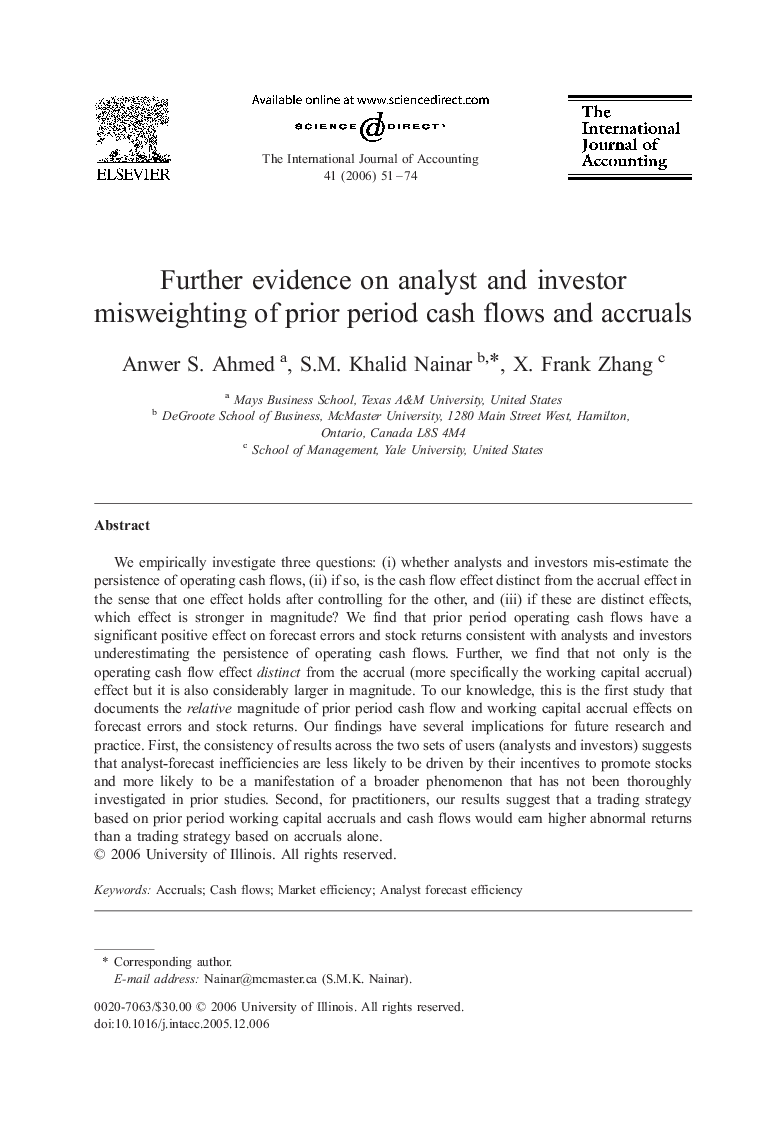| Article ID | Journal | Published Year | Pages | File Type |
|---|---|---|---|---|
| 1005306 | The International Journal of Accounting | 2006 | 24 Pages |
We empirically investigate three questions: (i) whether analysts and investors mis-estimate the persistence of operating cash flows, (ii) if so, is the cash flow effect distinct from the accrual effect in the sense that one effect holds after controlling for the other, and (iii) if these are distinct effects, which effect is stronger in magnitude? We find that prior period operating cash flows have a significant positive effect on forecast errors and stock returns consistent with analysts and investors underestimating the persistence of operating cash flows. Further, we find that not only is the operating cash flow effect distinct from the accrual (more specifically the working capital accrual) effect but it is also considerably larger in magnitude. To our knowledge, this is the first study that documents the relative magnitude of prior period cash flow and working capital accrual effects on forecast errors and stock returns. Our findings have several implications for future research and practice. First, the consistency of results across the two sets of users (analysts and investors) suggests that analyst-forecast inefficiencies are less likely to be driven by their incentives to promote stocks and more likely to be a manifestation of a broader phenomenon that has not been thoroughly investigated in prior studies. Second, for practitioners, our results suggest that a trading strategy based on prior period working capital accruals and cash flows would earn higher abnormal returns than a trading strategy based on accruals alone.
